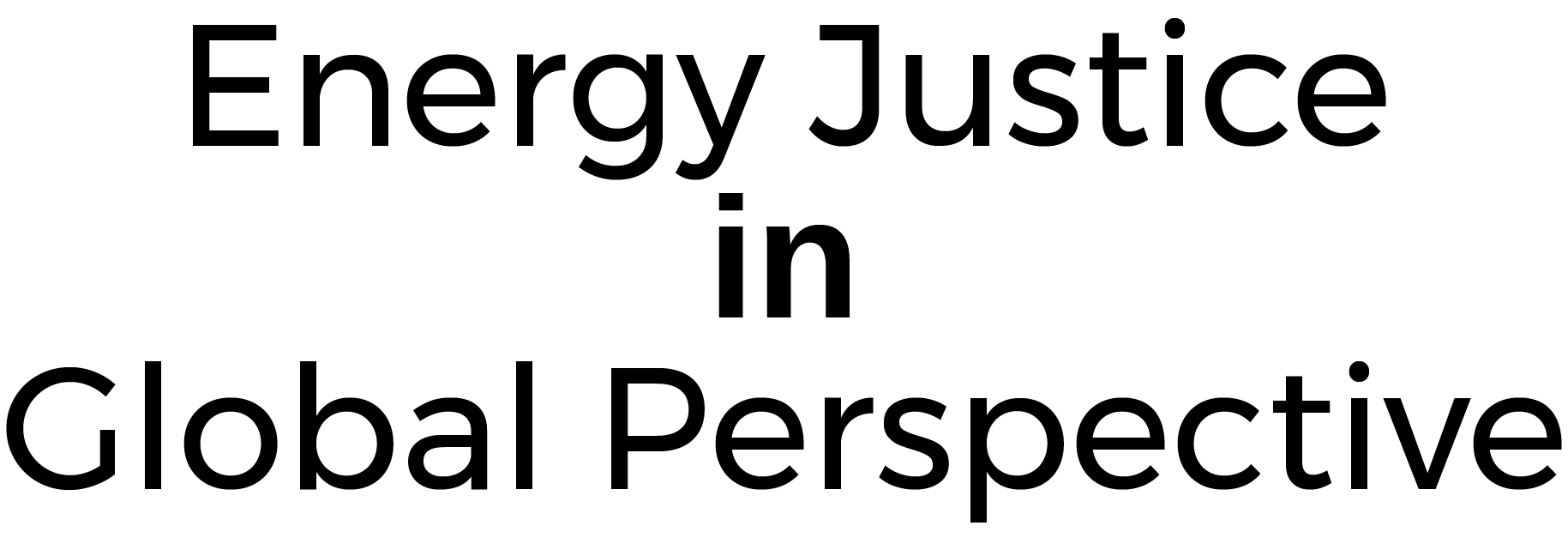Energy Justice in Global Perspective
AY 2018-19 Seminar Schedule
In addition to a public program of events, graduate seminars were offered each quarter of AY 2018-19. There were three graduate seminars; students were encouraged but not required to take all three. The seminars examined the key themes of Epistemologies, Infrastructures, and Participation in depth through weekly readings and discussions intended to enhance graduate student engagement with the public facing programs organized as part of the year long Sawyer Seminar. Please consult the Events page for a full description and details of the events that were open to the community.
Fall 2018
Graduate Seminar One: Epistemologies | SYLLABUS
FAMST 252EJ: Energy Justice in Global Perspective – Epistemologies
GLOBL 253: Science, Technology and Globalization
Facilitators: Javiera Barandiaran and Mona Damluji
Until the relatively recent emergence of environmental and energy humanities as institutionally recognized interdisciplinary fields, the assumption had been that expert knowledge about energy came solely from disciplines in science, engineering, political science, and economics. However, the establishment of environmental and energy humanities has powerfully demonstrated that significant knowledge of our entanglements with energy and related outcomes is also advanced by critical humanities-based approaches, attendant to overlooked cultural, social, political, and philosophical dimensions of global energy systems.
Many have argued that modern life as we know it today is inevitably dependent upon our existing energy systems, and yet this relationship between modern culture and energy infrastructures is often taken for granted. In their new anthology, Energy Humanities, Imre Szeman and Dominic Boyer draw critical attention to the premise that, “To be modern is to depend on the capacities and abilities generated by energy. Without the forms of energy to which we’ve had access and which we’ve come to take for granted, we would never have been modern” (2017, 1). The seminar will open with readings and discussion on these issues, bringing ideas of modernity into conversation with new work on global poverty that foregrounds histories and imaginaries of development
Winter 2019
Graduate Seminar Two: Infrastructures | SYLLABUS
FAMST 262EI: Special Topics in Film and/or Media Globalization – Energy Infrastructures
HIST 201C: Advanced Historical Literature -- Comparative
Facilitators: Janet Walker and Stephan Miescher
This seminar, part of the year-long Mellon Sawyer Seminar on Energy Justice in Global Perspective, explores the sociocultural and environmental costs of energy infrastructures. Our work together will be anchored by three symposia on oil, hydro, and solar, respectively, that examine how such projects are mediated, resisted, and reimagined. Coming from the perspectives of Film and Media Studies and History (the disciplinary formations of the two faculty), we will explore the frictions between different disciplinary approaches in order to think in a transdisciplinary fashion; delve critically into multiple research methodologies, such as archival, interviews (past and present), field work/participant observation, and textual/visual analysis; all the while striving to privilege perspectives from the Global South, which we regard not only as a geographical place but also as a figurative construct that includes marginalized, Indigenous, and impacted regions and communities.
We will feature a number of scholars, artists, and activists in our seminar. On January 24-25, we will hold a two-day symposium to mark the 50th anniversary of the 1969 Santa Barbara oil spill. This event will include scholars like
Imre Szeman (English Language and Literature, University of Waterloo),
Teresa Sabol Spezio (Environmental Analysis, Pitzer College), and
Bhavna Shamasunder (Urban and Environmental Policy, Occidental College) as well as artists like
Brenda Longfellow (Associate Professor of Cinema and Media Studies, York University), who will present her interactive documentary work at an opening reception on January 24. We will also engage with questions surrounding the social justice implications of hydro and solar infrastructure and feature speakers such as
Nick Estes (Assistant Professor of American Studies, University of New Mexico),
Valerie Haensch (Institute of Social and Cultural Anthropology, LMU Munich),
Lisa Parks (Global Media Technologies and Cultures Lab, MIT),
Joshua Kirshner (Geography, University of York), and
Dustin Mulvaney (Environmental Studies, San Jose State University) as well as independent filmmaker
Todd Darling.
Spring 2019
Graduate Seminar Three: Participation | SYLLABUS
ENVS 293 EJ
Facilitators: David Pellow and Emily Roehl
This seminar will focus on the ways in which participation of activists, scholars, students, and other actors shape, reinforce, and challenge energy justice histories and futures. Energy justice scholarship and politics include analyses of dominant energy systems, regimes, and the ideologies that support them (as well as how they intersect with other sectors, systems, regimes, and ideologies). That means understanding how energy extraction, production, distribution, consumption, and disposal practices have become so highly uneven across social categories and space, and how nation state, capitalist, and colonial political-economic and cultural frameworks undergird and support them. Energy justice also aims to support transformative alternatives to these dominant approaches, articulating how the socioecological injustices built into energy infrastructures can be challenged.
The seminar will be structured around group projects focused on developing collaborative relationships and work products between UCSB students and local communities leading energy justice struggles. Shaped by the perspective of the Environmental Social Sciences, Environmental Justice Studies, and Ethnic Studies (the disciplinary formations of the faculty instructor), this course explores tensions and generative linkages across various disciplinary perspectives on energy, environmental, and climate justice theories, discourses, practices, politics, and policy; we will examine, interrogate, and practice various research methods, with an emphasis on collaborative, participatory, community-based research.

